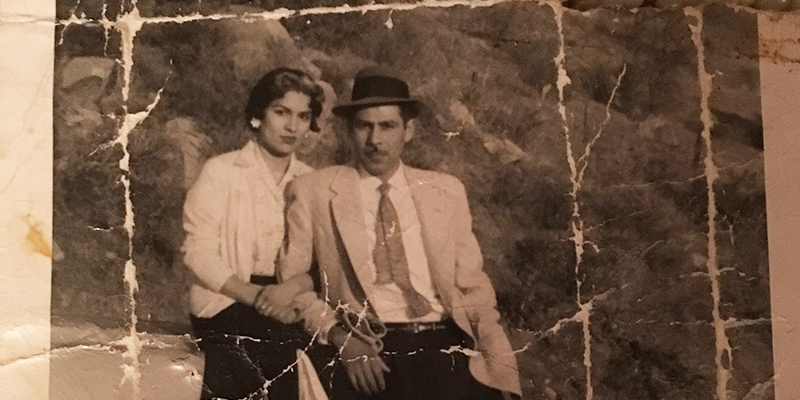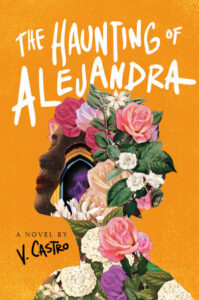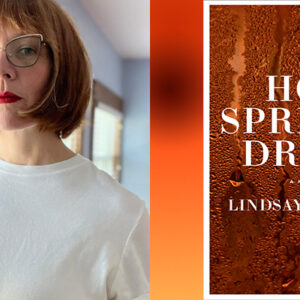I am a storyteller. My voice and perspective are unique to who I am and my experiences. There is no one else on this planet who has looked through these eyes, or soul, and filtered the world the same way as I have. This goes for everyone, including the characters in the stories we tell.
So often in our lives we only see one dimension of a person or a story. Social media is built on this. However, behind whatever we think we know lies the truth. This was my approach to the story of La Llorona and telling the story of Alejandra. I have been both women, trapped by the stories I was told since childhood how to be, how to look, what should be important to me, and my place in the world. And as I became a woman and had my own children, it scared the hell out of me every time I looked in the mirror.
La Llorona is well known for the woman who murdered her children, then committed suicide, because she couldn’t have the man she wanted. Is this plausible? Maybe. But considering how old the tale is, I question where it originated. We love to tell the stories of hysterical, unhinged women because it fits into certain social narratives. We also love to romanticize the story of motherhood and pregnancy. It’s a huge business. There are many women across generations in the book and all have different experiences with motherhood. One in particular I took from my own family history. My grandmother abandoned my mother and her six children. My mother doesn’t remember her. We have faded photos and that is all. She left like a ghost and remained a ghost after multiple attempts across the years to find her. No one knows why she left. My own mother and I had a rocky relationship for may years and I know it was because of the void left from abandonment at such a young age.
So many times we are not in control of our own narrative. We take on the one passed down from our mothers, or parents, history, trauma, and the larger society without question.
In the book I show many generations experiencing the same hurts and questions without answers. As a Mexican American, I grew up between two cultures. I didn’t want to choose, but living in south Texas I felt I had to choose to succeed and fit in. My parents didn’t speak Spanish to me because what was the point? The border is a place where migrant workers and illegal immigrants are used across many industries for labor, but looked down upon as a necessary dirty secret. And let’s be honest, it’s across more than just Texas. I love my heritage, but it has been made to be a reminder that I am different and the fact I have to try harder is never far away. Anyone who says this is woke drivel can look at the statistics across industries and see how society truly values women of color.
The greater society says I should change or stay silent and not the other way around.
In The Haunting of Alejandra, my protagonist finds her roots, and a true friend, at her lowest point with the curandera therapist Melanie. I needed this reclamation of traditional faith in the story and I needed to show where this curse began way back in the sixteenth century. My ancestors had to change to survive and their personal stories erased from history because it didn’t fit into the greater narrative the colonizers wanted to tell about their place in the world. I myself practice brujeria.
So why horror to tell the story of Alejandra? Dark fiction is incredibly important in literature. Humans are prisms of emotions, thoughts, and experiences. There is light and there is shadow. Dark fiction allows the storyteller to flesh out the murky side of the human experience in a way that entertains or keeps the audience captivated for a moment in time. We can better understand ourselves and others who might be just as wounded through storytelling.
Sometimes in those experiences we feel utterly alone. I would bet my grandmother who left without a trace felt completely abandoned and isolated in a house full of children after being married at nineteen to a man who was in the military and was not around to help. I felt alone not knowing how to ask for help when motherhood became overwhelming. I didn’t want to leave my family. I wanted to leave this experience completely.
But our stories can let someone know they don’t have to feel they are on their own.
Instead of wallowing in silent pain we can put our hands up and scream. This is what I also love about dark fiction and trying to express what is like to be a person from a marginalized community. Instead of someone guessing about my experience, or feeling the impulse to inaccurately tell my version of the story, I have the power to tell it in my own words and in my own way, especially the unpleasant stuff. People can write about whatever they want, but allow me the space to also tell my story and other writers from marginalized communities the same opportunity.
This is another reason why I wrote Alejandra. We need more conversations about mental health and women of color who are often expected to be strong and silent or angry and loud.
I have cried many stifled tears, ashamed to say I deserved so much more and needed more out of life, this one chance. The pain upon opening eyes sometimes left me wanting to drown in my bed knowing full well what real change in my life would require. I didn’t want to let anyone down or be perceived as a failure even though I called myself that every waking moment, that demonic voice of self-doubt and loathing.
So I screamed into the void of a blank page, not realizing salvation was there all along. And no it was not easy. I blew up my entire life to really live. Maria The Wanted was my first book in 2018 and now The Haunting of Alejandra has arrived.
If there is one thing you take from Alejandra, or any of my stories, is that personal power and direction are free. It isn’t easy, but this book is living proof that it is possible. Don’t let anyone tell you who you are, who you should love, what you must look like, or what your body is or isn’t. It is no one’s business but your own. Your happiness is your own and you are not the past, or some lukewarm tolerable version of what you want to be.
***


















